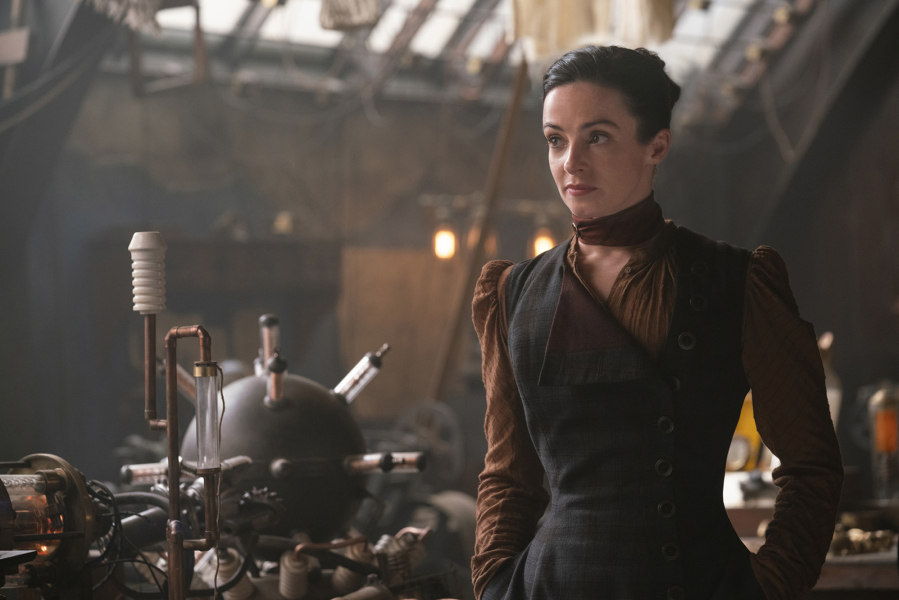The symbolism in “The Nevers” isn’t subtle: In the heart of Victorian London, a very specific group of people are completely ostracized from society for being different. But not because of their race or gender or financial status; they woke up one day and had magic.
They are called “the touched,” but not in a gift from God kind of way. Their abilities, or “turns,” which range from foresight to a magical understanding of energy to transforming objects, have turned them into freaks.
“Victorians loved to take pity on people they saw to be morally vulnerable and cure them of their vulnerability and otherness,” said Olivia Williams, whose character, Lavinia Bidlow, a rich spinster with secrets of her own, funds an orphanage for the touched.
“While [Lavinia’s] intentions might, in one version of history, be good, she’s from that tradition where morally correct rich people try to cure morally corrupt poor people of their ills.”
“The Nevers,” which premiered recently on HBO, begins with the touched existing and going about their business on the outskirts of society.
The orphanage is led by Amalia True (Laura Donnelly), a spontaneous, reckless woman who embraces chaos and has no time for the elite’s rules. Next to her is the quiet Penance Adair (Ann Skelly), a burgeoning inventor balancing her progressive creativity with the pressures of her Catholic upbringing. These two, with Lavinia’s money, have created a home for the touched but have yet to convince their neighbors that there’s nothing to fear.
“When I watch something and it deems itself a feminist whatever, the character is just so unbelievably amazing and flawless in every way,” Skelly told the Daily News. “What I really like is that this is feminist in that the women are just people. Their intelligence and their sharpness and their humor and their messed-upness is on parallel with the male characters of the show.”
“Every person I admire in my life is horrendously messed up in more ways than one.”
“The Nevers” shoves a series of convoluted plots into its story lines, and the similarities to “Buffy the Vampire Slayer” will not be lost on many. Producer Joss Whedon, who also created “Buffy,” left “The Nevers” in November, citing a “year of unprecedented challenges.” In the ensuing months, multiple people accused Whedon of toxic behavior on sets ranging from “Angel” to “Justice League.”
He was replaced with showrunner Philippa Goslett, and his name was scrubbed from “The Nevers” marketing material.
Muddled storytelling aside, action and wry humor punctuate the greater theme of understanding and the need for inclusivity.
“I think, overall, it’s a show about equality of all sorts,” Donnelly told The News. “I wouldn’t class it as specifically a feminist show because it speaks to what it’s like being any sort of minority in society and to be ‘the other’ in society, to not have your voice heard, to not have power and what that happens when you start turning those tables.”
Those voices rising about the din in “The Nevers” Victorian London are distinctly male.
“My character certainly and [Lord Massen, played by Pip Torrens] represent the unconscious privilege of the white man who don’t even know that they’re privileged,” explained Denis O’Hare, who plays Dr. Hague. “They have no idea that they’ve just been handed things and haven’t earned things and they don’t even deserve things. They just get them by accident of their birth.”



